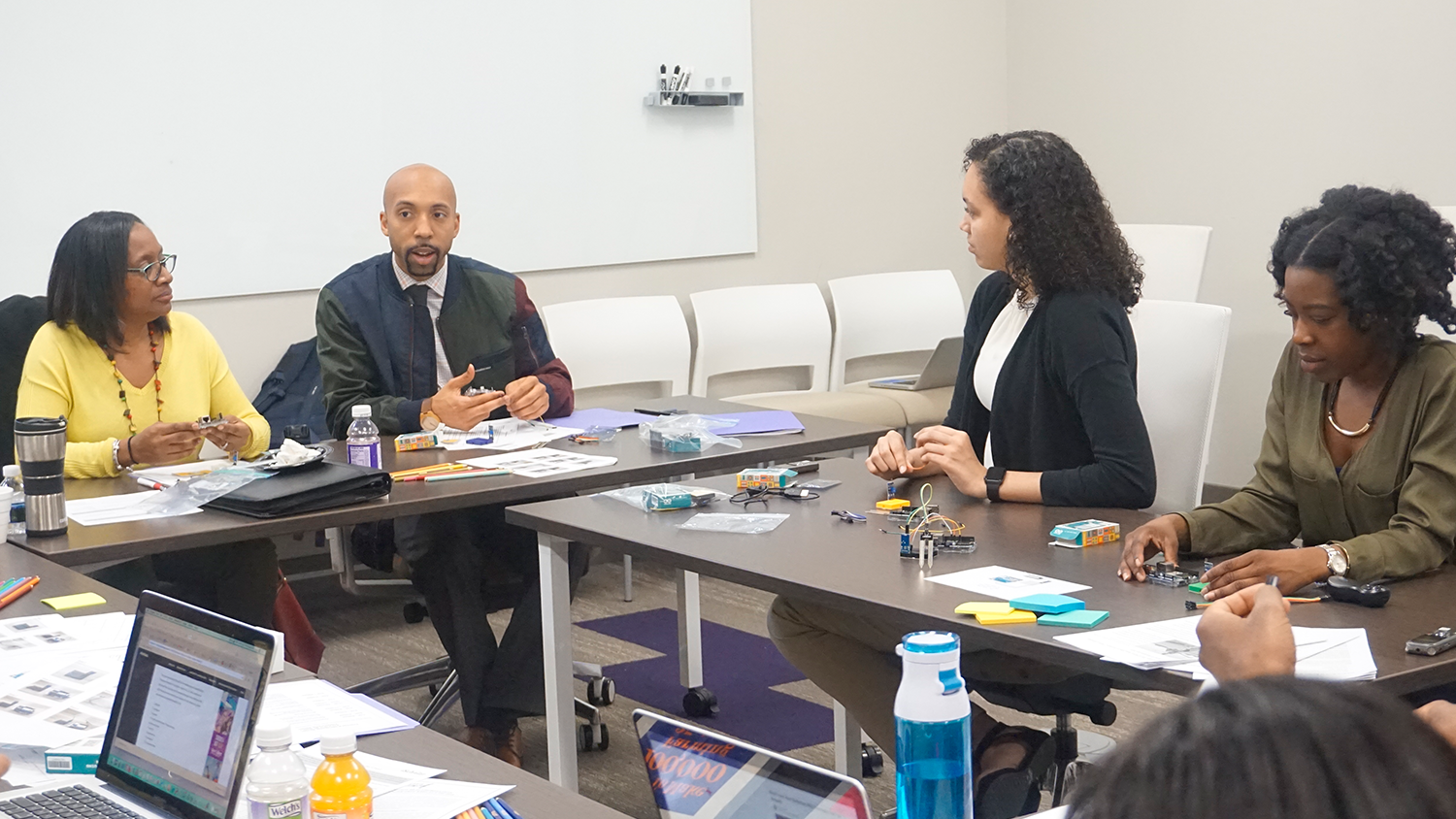TELS Research

College of Education Awarded $3.1 Million in Grant Funding From April through June 2024

College of Education Researchers Hope to Create Set of Shared Teaching and Learning Principles for Early Mathematics Education through National Conference

Associate Professor DeLeon Gray, Doctoral Students Outline Path for Communally Engaged Educational Psychology in New Publication

College of Education Awarded $5.6 Million in Grant Funding From July Through September, 2023

Assistant Professors Samantha Marshall and Sunghwan Byun Aim to Improve Mathematics Learning for Multilingual Learners through Grant-funded Project

Publication and Presentation Roundup: A Look at Scholarly Work from College of Education Researchers from October-December, 2022

NC State College of Education Awarded $26.9 Million in Grant Funding From October Through December, 2022

In-Person Learning Helped Narrow Reading Gaps During Pandemic

NC State College of Education Awarded $6.4 Million in Grant Funding From July Through September, 2022
